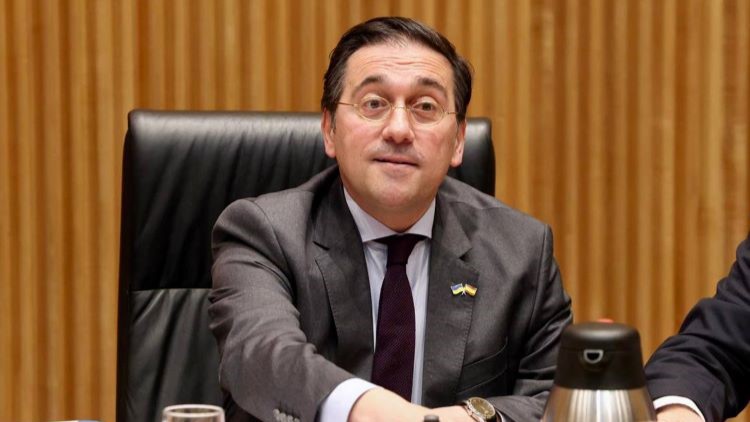The Diplomat
The acting Minister of Foreign Affairs, José Manuel Albares, assures that the Government is not aware of any European member state’s opposition to the inclusion of Catalan, Galician and Basque in the EU’s language regulations, and is therefore confident that the “firm proposal” put forward will go ahead on 19 September.
This is what he said in an interview with Europa Press, after sending a letter to the EU Council on 17 August, which Spain is chairing this six-month period, calling for procedures to be initiated to include “Spanish languages other than Castilian which have official status in Spain” in the EU’s language regime.
“The Spanish government’s proposal is clear and firm”, stresses Albares, who, after sending the letter, acknowledged that it formed part of the agreement reached with Junts for Catalan pro-independence supporters to support the Socialist Francina Armengol as president of Congress, thus complying with the “verifiable facts” demanded by Carles Puigdemont.
The minister explains that he has already been discussing the matter with many of his European colleagues and also took advantage of the informal meeting of EU Foreign Ministers in Toledo this Thursday to deal with this issue given that, at Spain’s request, it will be included on the agenda of the next General Affairs Council (GAC) on 19 September.
“I am not aware of any country, either publicly or informally, that has opposed this Spanish request for the moment,” he assures us, acknowledging that “the regulations and treaties are very clear on the matter, and unanimity in the Council is necessary“.
“That is why we are taking it to the General Affairs Council and working to obtain this unanimity”, he adds, hoping that “on the 19th we will be able to take a decision on the matter”.
As he explains, the government has consulted with the Council’s legal services, who have told him that the GAC, as a Council formation, is “perfectly valid” for taking a decision without the need for it to be taken to the level of leaders.
As for the timetable for Catalan, Basque and Galician to have the same full status as Spanish and the other 23 official languages currently in the EU, the minister acknowledged that “it is difficult to predict”.
“I cannot make a statement until I see how the debate develops on 19 September,” he said, assuring that until then he would continue to explain to his colleagues the Spanish government’s “very clear approach”.
Albares recalled that in 2004 the government of José Luis Rodríguez Zapatero “expressed this desire, although it did not formally present this request, as we have done in this case” and a year ago he himself sent a letter to the President of the European Parliament, Roberta Metsola, to request the use of the co-official languages in plenary sessions.
There are currently 24 official languages in the EU. The last to join was Croatian in 2013, when the country joined the EU. The only co-official language that has been included among the EU’s official languages to date and after the country’s accession was Gaelic in 2007 (Ireland joined in 1973).
However, although Gaelic was recognised as an official and working language of the EU in 2007, it was not until 1 January 2022 that it obtained its full status as such, after the Irish government requested in 2015 that the gradual process for this begin, as initially there was a derogation approved by the Council and not all documents were translated into this language.
With regard to the demand also made by the pro-independence supporters for an amnesty law and whether this would be understood in Europe by their partners, Albares avoids making a statement, referring to what has already been stated by the acting Prime Minister, Pedro Sánchez, who said that “the method is dialogue and the framework is the Constitution”.
On the domestic front, Albares rules out the possibility of a grand coalition in Spain, as there was in Germany, because in his opinion, Alberto Núñez Feijóo’s PP is not the right-wing that Angela Merkel’s CDU represented.
“I would like there to be a right wing in Spain like the German right wing that Angela Merkel represented and that the CDU represents,” he says.
And on whether he sees himself continuing as Foreign Affairs Minister if Pedro Sánchez is invested as President of the Government, he is cautious: “I am not going to enter into any speculation on a subject that is the absolute and exclusive competence of the President of the Government”.






